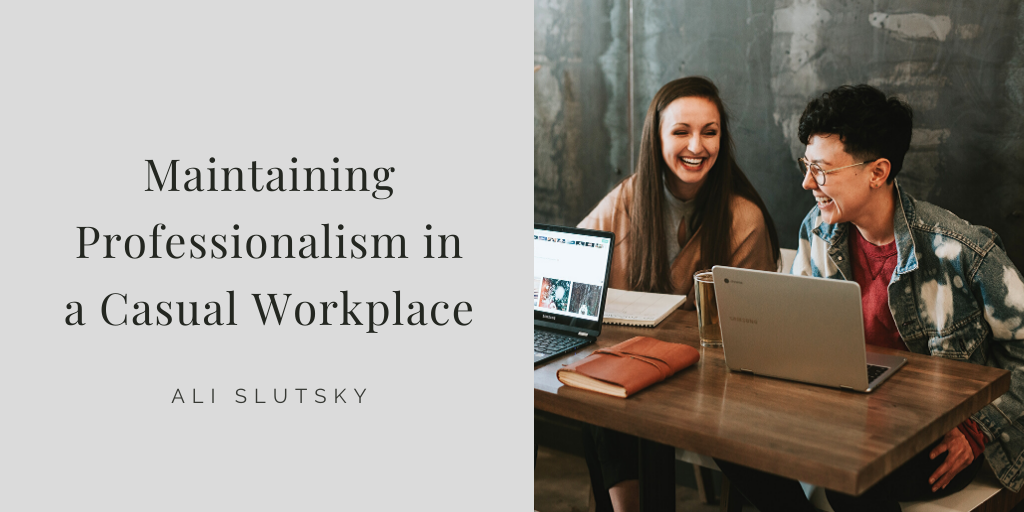Executives and managers of many companies like to promote a casual atmosphere. That said, such an environment shouldn’t come at the cost of being professional. Professionalism can still be maintained in a casual workplace, provided all employees understand the laws of the land. How can companies achieve that balance without teetering too far to one side?
Implementing Informal Dress Codes
At companies across the country, employees enjoy freedom from suits, ties, dresses, and high heels. However, that doesn’t mean that everyone wears sweatpants to work. Informal dress codes are still dress codes, and they set a standard for what clothing is office-appropriate. So, while employees are free to wear khakis, jeans, and sweatshirts, they still have to adhere to appropriate attire standards. Studies on informal dress codes have found that the comfort associated with casual dress may precipitate a greater degree of productivity.
Maintaining Professional Relationships Between Managers and Employees
While there is no written-in-stone mandate that prohibits superiors from befriending staff members, all manager-employee relationships should be forged carefully. It is, of course, appropriate for superiors to treat their employees with a significant degree of respect and decency. However, investing in friendships might sometimes cause friction and could result in trouble down the line. Tread carefully if you want to blend work and personal relationships.
Taking Liberties—But Not Too Many
Certain workplaces arrange social meetings at bars, in-office happy hours, and other fun events. Employees are encouraged to avoid taking social liberties while attending such occasions, as these are opportunities to kick back, relax, and have fun. While employees should definitely take advantage of these de-stress events, they should also display appropriate social behavior. Remember; these events are not the time to become intoxicated or engage in any other behavior that could be deemed inappropriate or unprofessional.
Setting Regulations and Expectations
Casual environments should not be free of regulations or expectations. Even the most informal organization has goals and expectations in place to offer direction. Specific guidelines for employees can help keep everyone on track and of the same mindset, making it easier to make progress on goals. Such mandates should be established early on in an employee’s tenure and emphasized on a regular basis. Additionally, workers should be expected to perform up to a certain level. Again, an informal atmosphere should not be an invitation to slack off. Use the casual environment to promote teamwork and positivity, not to forgo goals!

